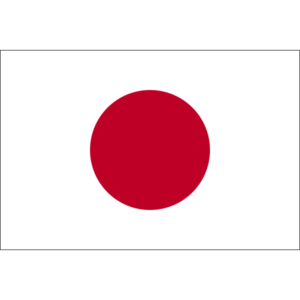Fidelity Japan Trust plc (LON:FJV) is the topic of conversation when Hardman and Co’s Analyst Mark Thomas caught up with DirectorsTalk for an exclusive interview.
Q1: You called your recent report on FIDELITY JAPAN TRUST, FJV: 10 questions for the AGM on 17 May 2022. What can you tell us about it?
A1: In this note, we asked the 10 questions we would ask the FJV board at the forthcoming AGM on 17 May 2022. To offer a perspective, we also gave the answers that we would give, if we were asked the same questions.
We believe they fall into four key categories: i) What are the likely impacts on the trust of the Russian invasion of Ukraine? ii) Having outperformed for many years, why has the trust’s performance dipped recently, and what will see it return to outperformance? iii) How will the investments perform in a higher-inflation environment? iv) What is the macro outlook for Japanese equities, given the economic, market and ESG perspectives?
Q2: What will be the impact on the trust of the Ukraine crisis?
A2: The humanitarian impacts of the invasion must, of course, always be the primary consideration. There will be a range of direct and secondary effects on the trust, and it is a very volatile situation. The direct impact on investee companies appears modest, with little investee company exposure and FJV underweight the most exposed sectors, such as automobiles. Indirect impacts include the effect of inflation, which we discuss in detail in our note, and which may benefit FJV’s efficiency enabler investments – a core theme. Another indirect effect will be lower global demand. Market overreacting can create mis-pricing anomalies for fundamental investors like FJV.
Q3: The key issue would appear to be that, after many years of consistent outperformance, why has the trust’s performance dipped recently, and what will see it return to outperformance?
A3: We flagged, in our initiation report, that the trust’s investment approach carried the risk of being, temporarily, out of favour, and this will be the third such period since the manager took over in 2015. The key drivers are a conspicuous style rotation, leading to the outperformance of value and sharp declines for growth stocks – most evident in the buying of low price-to-book (P/B) names and selling of high P/B stocks. Another issue is the extreme narrowness of price movements with intra-sector divergence. Finally, FJV employs gearing – so, in a falling market, it will fall more than the benchmark. These effects, though, have typically been temporary, and, during the current manager’s mandate, these episodes, typically, have been around a quarter; immediately after, there has been significant outperformance.
If you look at what drives the long-term outperformance, it has been structural. FJV is in an attractive market. Its trust-specific factors include the following: i) an investment process and focus on under-researched growth companies ‒ compared with local investors (as noted earlier, FJV has a competitive advantage in Fidelity’s global presence, while, compared with international investors, it has been on the ground, with a local team, speaking Japanese, since 1969; ii) a flexible mandate ‒ including investing in unlisted companies; iii) an active management, combined with a strong sell discipline; iv) a closed-ended structure, allowing gearing; and v) positive (relative) ESG credentials.
Q4: And how will the trust perform in a higher inflation environment?
A4: There has been some impact already, with the rating of some companies falling, but FJV’s investments are generally currently profitable companies, and are not those dependent on terminal values or based off revenue multiples. FJV buys businesses with pricing power, and exposure to inflation risk is a part of analytical review. The core approach that has delivered the long-term outperformance is unchanged, and bear in mind that market disruption creates opportunities.
Looking at the specific portfolio positioning, the manager turned a bit more cautious towards the end of last year (inventories were on the rise in the manufacturing sector, and there were signs of a post-COVID-19 shift from goods to services). The manager is focusing more on defensive/sustainable growth names and services companies that can grow earnings in the more difficult environment through 2H’22/2023.
Q5: What is the outlook for Japanese equities for the rest of 2022?
A5: Around 40% of investee company revenue comes from outside Japan. So global growth is important, and it is also important to bear in mind that Fidelity Japan Trust’s stock selection means that it is exposed to specific niches within Japan, not the whole market. We would argue that “What is the economic outlook for Japan?” is actually the wrong question to be asking, but we should be focusing on the robust, if unexciting, GDP outlook. If we look at valuations, they are in line, based off historical earnings, and on P/B measures. However, they are cheap on one-year forward P/E ratios compared with past 10 years and relative to other markets. Analysts’ forecasts may be somewhat dated, of course.



